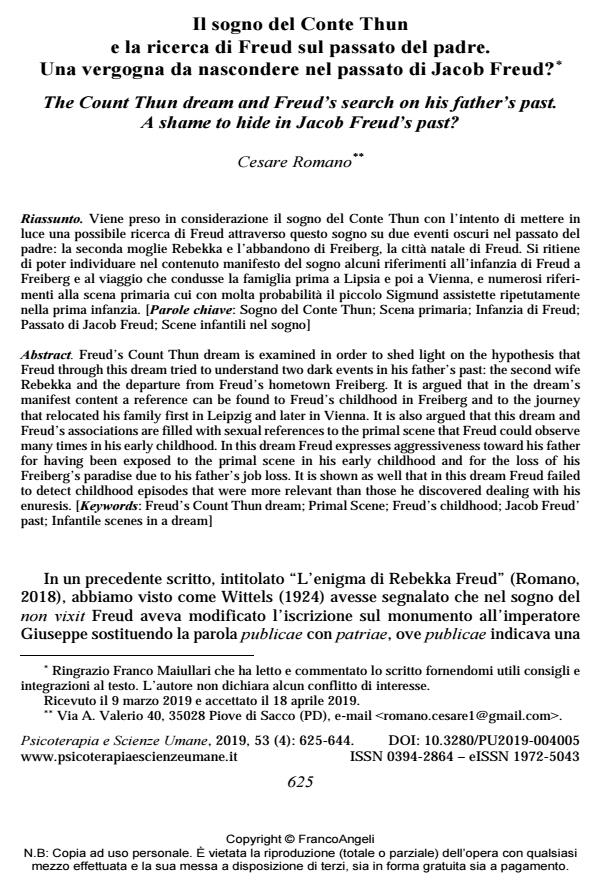The Count Thun dream and Freud’s search on his father’s past. A shame to hide in Jacob Freud’s past?
Journal title PSICOTERAPIA E SCIENZE UMANE
Author/s Cesare Romano
Publishing Year 2019 Issue 2019/4
Language Italian Pages 20 P. 625-644 File size 101 KB
DOI 10.3280/PU2019-004005
DOI is like a bar code for intellectual property: to have more infomation
click here
Below, you can see the article first page
If you want to buy this article in PDF format, you can do it, following the instructions to buy download credits

FrancoAngeli is member of Publishers International Linking Association, Inc (PILA), a not-for-profit association which run the CrossRef service enabling links to and from online scholarly content.
Freud’s Count Thun dream is examined in order to shed light on the hypothesis that Freud through this dream tried to understand two dark events in his father’s past: the second wife Rebekka and the departure from Freud’s hometown Freiberg. It is argued that in the dream’s manifest content a reference can be found to Freud’s childhood in Freiberg and to the journey that relocated his family first in Leipzig and later in Vienna. It is also argued that this dream and Freud’s associations are filled with sexual references to the primal scene that Freud could observe many times in his early childhood. In this dream Freud expresses aggressiveness toward his father for having been exposed to the primal scene in his early childhood and for the loss of his Freiberg’s paradise due to his father’s job loss. It is shown as well that in this dream Freud failed to detect childhood episodes that were more relevant than those he discovered dealing with his enuresis.
Keywords: Freud’s Count Thun dream; Primal Scene; Freud’s childhood; Jacob Freud’ past; Infantile scenes in a dream
Cesare Romano, Il sogno del Conte Thun e la ricerca di Freud sul passato del padre. Una vergogna da nascondere nel passato di Jacob Freud? in "PSICOTERAPIA E SCIENZE UMANE" 4/2019, pp 625-644, DOI: 10.3280/PU2019-004005